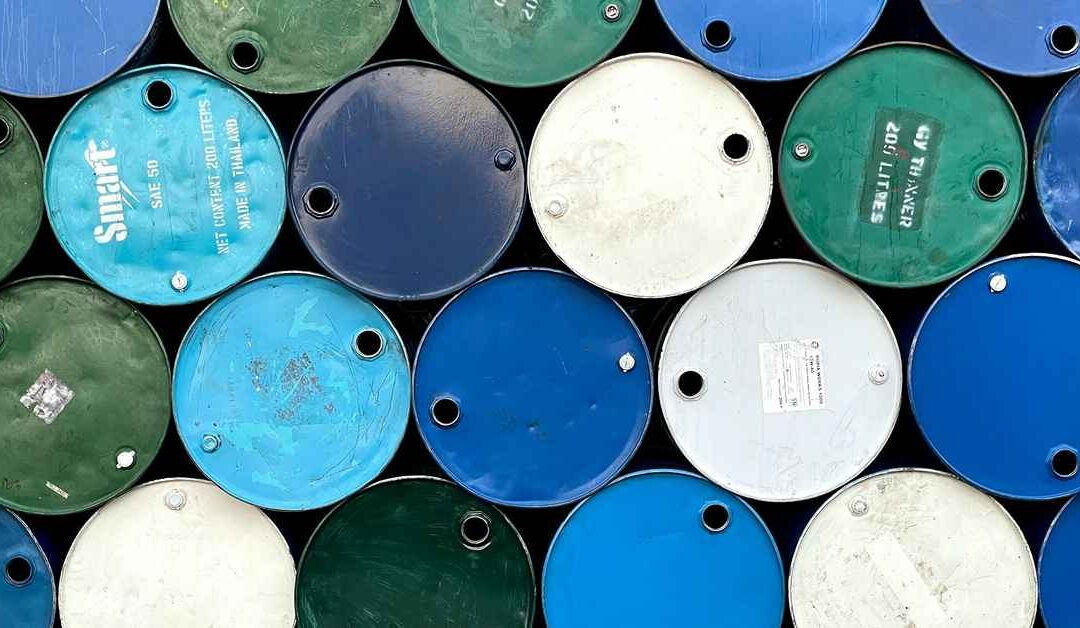Diesel fuel is essential to power backup generators in critical industries. But if stored too long or incorrectly, diesel can degrade and fail when you need it most. When you find yourself asking, “Does diesel go bad?” the answer is yes. Understanding how diesel ages, how long diesel lasts, and how to store it properly is key to keeping your backup systems ready.
This article explains how and why diesel goes bad, how long diesel fuel lasts, and what you can do to extend its shelf life using proper storage and diesel fuel filtration.
Does Diesel Fuel Go Bad?
Yes, diesel fuel does go bad. While diesel is more stable than gasoline, it still degrades over time. If stored improperly, it can become contaminated or break down chemically, making it unusable and potentially harmful to engines.
How Does Diesel Degrade?
Diesel fuel breaks down for three main reasons:
- Oxidation: When diesel is exposed to oxygen, it forms acids, sludge, and gum that can clog filters and injectors.
- Water Contamination: Water can enter tanks through condensation. This water causes hydrolysis, breaks down fuel molecules, and leads to corrosion.
- Microbial Growth: Bacteria and fungi thrive in the water layer that settles at the bottom of a diesel tank. These microbes form biomass and produce acids that damage fuel systems.
Left untreated, bad diesel can cause engine stalls, clogged filters, and costly generator failures—especially in emergencies.
How Long Does Diesel Last?
Standard Shelf Life
On average, untreated diesel fuel lasts 6 to 12 months in storage. After this point, fuel quality begins to decline because of oxidation and contamination.
Can Diesel Fuel Last Longer?
Yes, diesel can last up to 18 to 24 months if stored under ideal conditions. This requires:
- Clean, sealed storage tanks
- Minimal exposure to oxygen and light
- Controlled temperatures (below 85°F)
- Regular testing and fuel treatment
The NFPA 110 standard recommends consuming or replacing stored diesel within 1.5 to 2 years, or sooner if conditions are less than optimal.
Signs Diesel Has Gone Bad
Before using stored diesel, check for these signs of degradation:
- Thick, sludge-like texture
- Dark color or cloudy appearance
- Rotten or sour smell
- Filter clogs and hard starts
- Excessive smoke during operation
If you notice any of these, the diesel may be compromised and unsafe for use in industrial generators.
Risks of Using Old Diesel Fuel
Using old or degraded diesel can lead to:
- Engine damage
- Reduced performance
- Blocked fuel filters
- Corroded injectors and fuel lines
- Generator failure during outages
Operations managers relying on standby generators should treat diesel as a perishable asset, not a permanent resource.
How to Extend Diesel Fuel Shelf Life
To prevent fuel degradation and protect your equipment, use the following storage practices:
1. Store in a Cool, Dry Location
Avoid heat, sunlight, and humidity. High temperatures and UV light speed up oxidation and fuel breakdown.
2. Use Airtight Storage Tanks
Tanks should be sealed tightly to limit oxygen exposure. Fill tanks close to the top to reduce air space and moisture buildup.
3. Maintain Clean Fuel Tanks
Inspect tanks regularly for water, rust, and sludge. Clean tanks every 7–10 years, or sooner if contamination is detected.
4. Apply Fuel Stabilizers
Diesel additives slow down oxidation and prevent microbial growth. Use stabilizers that are specific to diesel fuel.
5. Perform Diesel Fuel Filtration
Fuel polishing systems remove water, sediment, and biomass from stored fuel. This keeps diesel clean and usable for longer periods.
What Is Diesel Fuel Filtration?
Diesel fuel filtration, often called fuel polishing, involves running stored fuel through a series of filters to remove:
- Water from condensation
- Microbial biomass
- Rust, dirt, and particulates
Filtration should be part of a scheduled maintenance program, especially for backup generators used in hospitals, data centers, and industrial plants. Clean fuel reduces breakdowns and increases generator reliability.
Best Practices for Long-Term Diesel Storage
If you manage long-term fuel storage, follow these tips:
- Inspect fuel monthly for signs of water or contamination
- Sample and test fuel quality at least twice per year
- Use biocides to kill microbes before they spread
- Keep tanks sealed and shaded to limit exposure
- Rotate your fuel supply to ensure oldest stock is used first
Following these steps can help you extend the lifespan of diesel fuel while protecting your investment in backup power.
Why This Matters for Your Operations
As an operations manager, your job includes keeping critical systems running during outages. That includes maintaining your diesel fuel supply.
At React Power Solutions, we support facilities with high-quality diesel and natural gas generators from trusted names like Caterpillar, Cummins, Kohler, Waukesha, and Detroit Diesel. But even the best equipment needs reliable fuel to operate when it counts.
We provide expert advice on storage, diesel fuel filtration, and service support to ensure your equipment starts and runs without fail. Don’t let bad diesel be the reason your backup power fails.
Protecting Your Fuel
So, does diesel go bad? Yes, and it often happens much sooner than people expect it to. While diesel fuel can last up to 12 months, it begins to degrade without proper care. Contamination, oxidation, and microbial growth are serious threats to fuel quality.
By investing in good storage practices and fuel maintenance, you can extend the shelf life of diesel fuel and ensure that your backup diesel generators stay ready when you need them most.
For help with fuel storage, filtration, or generator service, contact React Power Solutions today.






